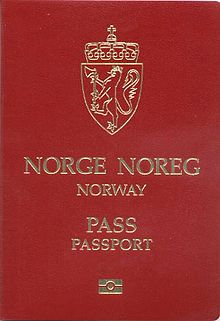Norway’s conservative coalition government has decided to send a proposal to Parliament that would finally allow dual citizenship on a formal basis. It still may take a few years, however, until the application process is in place.

Many foreigners living in Norway and abroad currently have dual citizenship, but they’ve won it as an exception to the rules. The country has held to a principle of “one citizenship,” but in cases where it’s difficult or impossible for a non-Norwegian to give up their citizenship, they’ve often been granted Norwegian citizenship and issued a Norwegian passport.
Norwegians who’ve moved abroad and become a citizen in their new country of residence, however, have been obliged to give up their Norwegian passports. That’s caused major dilemmas for Norwegians who wanted to retain their Norwegian citizenship but had to become citizens of another country in order to work in the public sector or because of family reasons.
Now the government wants everyone to get the same treatment, with a law that applies to everyone. The government also recognizes that the world has changed, with families and alliances spread over more than one country.
“We want to make sure that Norwegian law is in line with developments in a more globalized world, where steadily more people have ties to more than one country,” says Jan Tore Sanner, the government minister from the Conservative Party who’s in charge of education and integration.
Not only will expatriates in Norway be able to apply for citizenship when they become eligible, without giving up their current citizenship, Sanner stressed that Norwegians can retain their Norwegian passports (or get them back) when they’ve become citizens of another country, too.
Norway lagged behind
All other Nordic countries allow dual citizenship as do most all countries in Europe and elsewhere in the world. Norway has been among the last to allow dual citizenship, but news bureau NTB reports it will take time before the law is in place.
It first needs to win a majority in Parliament, which it is expected to receive at least with the support of the Socialist Left Party. The Center Party has remained skeptical and not even Labour has been an outspoken advocate of dual citizenship.
Once formally passed by Parliament, Norway must then cancel its compliance with the Council of Europe’s convention of May 6, 1963. It states that people lose current citizenship if they obtain new. The change in citizenship law can thus only take effect after the cancellation of the convention takes effect, which occurs one year after the Council of Europe has received Norway’s notice.
If the measure is approved by Parliament during the next session this autum, it could then take effect from January 1, 2020, if all goes smoothly. Otherwise it would click in sometime later in 2020 or 2021.
Citizenship test criticized
Immigrants in Norway still must pass written tests both in the Norwegian language and their knowledge of civics and social norms. The latter test, known as the statsborgerprøve, has recently been criticized for demanding that would-be citizens know things like which fjord in Norway is the longest and what dental treatment costs.
“I think it’s more important to test new citizens on attitudes instead of hard facts,” one new citizen from Brazil told newspaper Aftenposten recently. He passed the test but fully 30 percent have failed it because they didn’t know, for example, in which year the Sami Parliament was set up (1989) or how many children in Norway live with both parents (three out of four).
Would-be citizens have also been asked how much pregnant women must pay for health check-ups (nothing) and how many Norwegian adults have higher education (30 percent.) The idea is that new citizens should know quite a bit about Norway, but immigration advocates aren’t impressed. Georg Schjerven Hansen, who works with immigrants and refugees, doesn’t think the test aids immigration and rather makes immigrants more uncertain.
“When you have Internet and Google, you really don’t need to know which fjord is the longest,” Hansen told Aftenposten. He thinks many Norwegians would have failed the citizenship test as well.
newsinenglish.no/Nina Berglund

